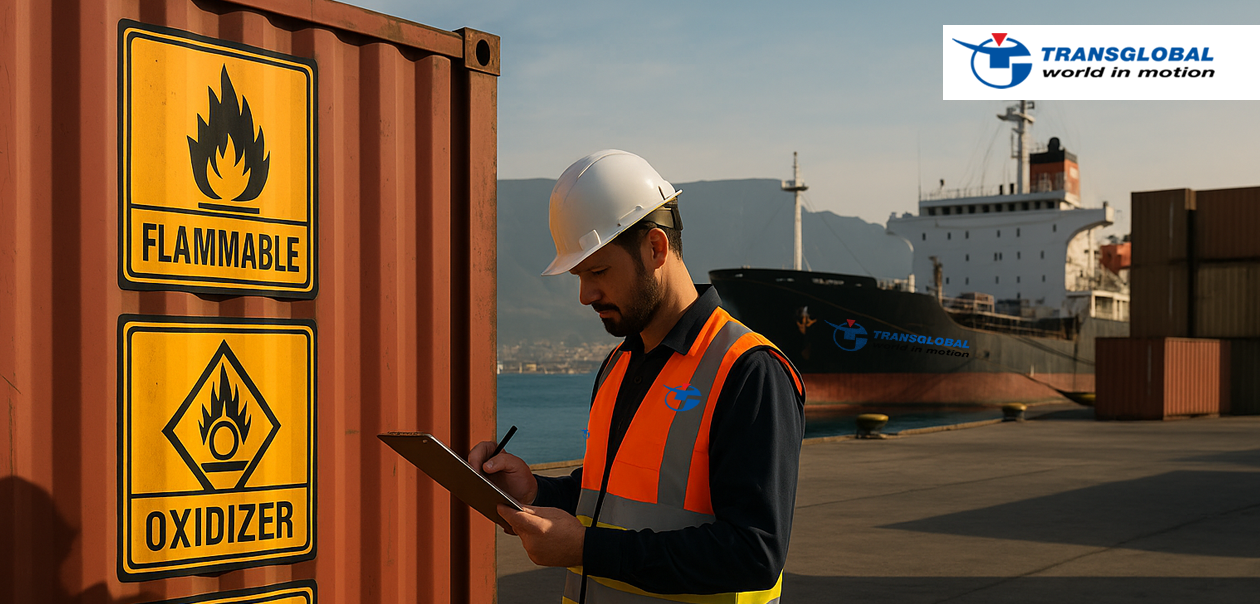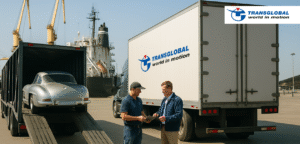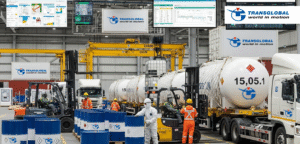Project Overview
A leading manufacturer of defense and industrial explosives in South Africa faced costly shipping restrictions due to port limitations on handling Class 1 dangerous goods. Transglobal Cargo stepped in with a transformative solution that didn’t just solve the company’s problem but reshaped the export capabilities for hazardous cargo across the nation.
“Transglobal Cargo went beyond simply forwarding our freight; they redefined how we move our products globally. Their solution didn’t just save costs; it opened entirely new pathways for our business.”
Our Customer’s Business Challenge
In 2016, the company was facing a critical obstacle. Under South African regulations at the time, Durban was the only port authorized to handle Class 1 dangerous goods exports, with a strict limit of 25 x TEU per vessel.
This limitation created two major problems:
- Excessive Shipping Costs: The company was forced to charter full vessels for shipments as small as 25 containers, driving logistics costs sky-high.
- Global Competitiveness Risk: Higher freight costs made the company less competitive on the global stage, threatening international contracts and future growth.
With demand growing internationally, the company needed a safe, compliant, and scalable way to export larger volumes of Class 1 cargo without breaking the bank.
Transglobal’s Unique Solution
As the best freight forwarder in South Africa, Transglobal Cargo refused to accept the limits imposed by the status quo. Instead of merely managing the challenge, our team set out to remove it altogether.
We launched a national port risk assessment, conducting on-site visits and engaging closely with regulatory bodies and port authorities across South Africa. Through meticulous analysis of infrastructure, safety protocols, and handling capacities, one location stood out: Coega Port.
Recognizing Coega’s potential, we worked hand-in-hand with regulators and stakeholders to prepare and submit a case for expanding Coega’s authorization to handle higher NEQ volumes of Class 1 cargo.
After months of collaboration, Coega Port was officially approved to handle up to 200 tons NEQ of Class 1 cargo per vessel, a nearly eightfold increase over Durban’s previous limit.
This was not just a solution for the company; it was a strategic shift that opened new routes and capacities for the entire South African hazardous cargo industry.
Objective Results
The impact of Transglobal’s work was immediate and significant:
- First Landmark Shipment: Transglobal successfully exported 76 x TEU of IMO Class 1 cargo for the company through Coega Port, over three times Durban’s old limit.
- Massive Cost Savings: The company avoided the need to charter entire vessels for small loads, dramatically lowering shipping costs.
- Boosted Global Competitiveness: Larger shipment volumes meant faster turnaround, lower costs per unit, and better positioning in global markets.
- Industry-Wide Benefits: Coega’s approval for higher NEQ volumes is now accessible to other companies in South Africa, transforming the logistics landscape for hazardous goods exports.
- Interesting Fact: Today, Coega Port is one of Southern Africa’s leading facilities for dangerous goods exports, offering scalable capacity that supports regional and international trade growth.
Conclusion
Transglobal Cargo’s innovative, determined approach didn’t just solve the manufacturing company’s problem, it changed the way for an entire sector.
Are you facing logistics challenges with hazardous or specialized cargo? Let’s explore solutions that move your business forward. Contact Transglobal Cargo today.




Comments